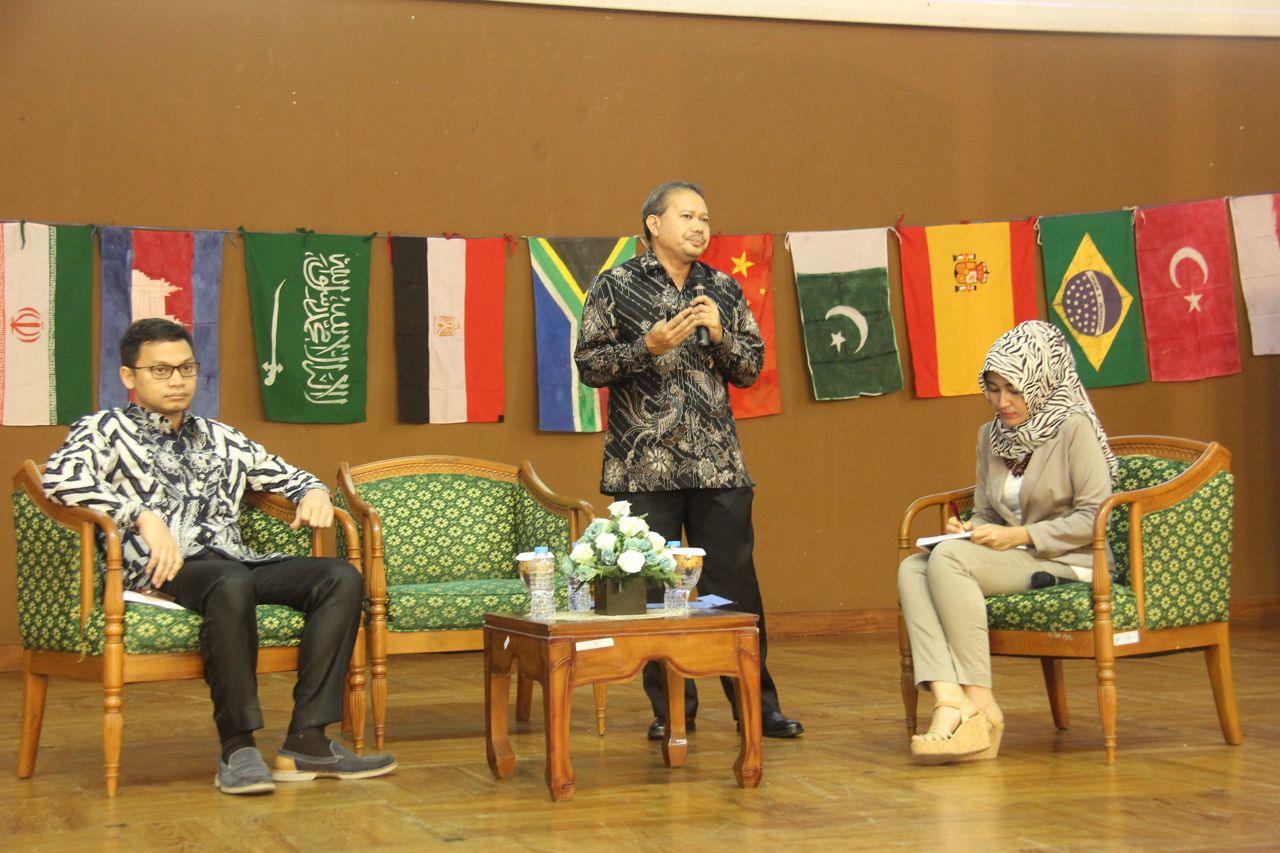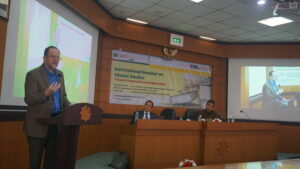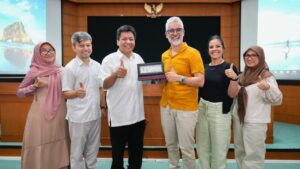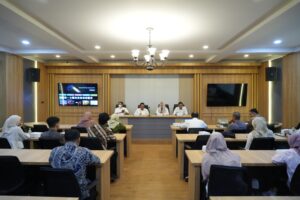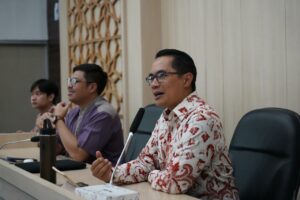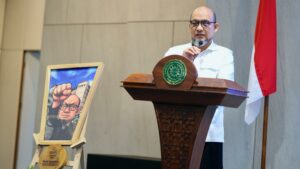Terrorism Corners Islam
Global terrorism is frequently associated with Islam. After the Cold War between the Soviet Union and the United States (US), Islam has been the antagonist replacing communists of the Soviet Union. The terrorism nowadays is a Western hegemonic project.
In an orientation day so-called Masa Ta’artuf (MATAF) of International Relations of Universitas Muhammadiyah Yogyakarta (UMY) on Thursday (8/9) at Sportorium of UMY, a member of Commission I of House of Representative of Republic of Indonesia (RI), Ahmad Hanafi Rais, and chairman of Center for Education and Training of Ministry of Foreign Affairs of RI, Eko Hartono discussed ‘How the World See Islam as Global Terrorism’.
Negative images of Islam as a new antagonist against the US is always created. “Talking about terrorism, we also talk about ISIS, Al-Qaeda, and other movements. The US in fact, established the movements. Al-Qaeda was a militant organization in Afghanistan founded by the US to fight Afghans, but the organization fought back the US. ISIS is also coined by the US to wage war in Syria,” Hanafi Rais conveyed.
He argued that terrorism is deliberately related to Islam. The US sees Islam as an antagonist to fight. Indeed, terrorism is one of the impacts of globalization dissatisfaction. “Globalization does not provide a lot of options. All are the same in globalization. Thus, terrorism occurs because people are disgruntled with globalization,” he contended.
He inserted that terrorism has become an industry. “For instance, Santoso has just been asserted after years. His team consisted of 15 people and lived in a mountain. On the other hand, the number of police and armies are a lot. I wonder whether this case was deliberately left in order to create an industry prospering a few parties,” he suspected.
Besides, chairman of Center for Education and Training of Ministry of Foreign Affairs of RI, Eko Hartono believed that terrorism attack youth through internet and social media. “Due to addiction of youth to social media, youth becomes the requirement target of terrorism. Internet is a mean of ISIS or other radical groups to influence the youth. According to data of Setara Institute, Indonesian youth’s intolerance is getting wider. 38.4 % of senior high school students in Jakarta and Bandung showed high intolerance, 2.4% of the students believed radicalism, and 0.3% of students easily undertook terror,” he presented.
Indonesian government has performed strategies to cope with terrorism. There are two approaches, namely hard approach and soft approach. Hard approach is regulated on Law No. 15/2003 and Law No. 9/2013, while soft approach is carried out through detection, prevention, rehabilitation, and tight social agency management.
Indonesian diplomacy in terrorism management utilizes soft power diplomacy which refers to stating values. “Having the largest population of Muslims in the world, this terrorism issues are not good for Indonesia. Hence, government would like to convey Islamic values in the terrorism management. Islam in Indonesia is moderate Islam, respectful, harmonious, and rahmatan lil ‘alamin. Islam and democracy can go hand in hand,” he declared.
Eko told that public diplomacy to coin an image of Indonesia as a moderate Muslim country is undertaken through inter-faith dialogue and intra-faith dialogue. “The intra-faith dialogue will reinforce understanding of faith and enhance respect inter-faith. Muslims should also be aware of tolerance inter-faith to promote Islam as a peaceful religion and far from terrorism,” he ended.
